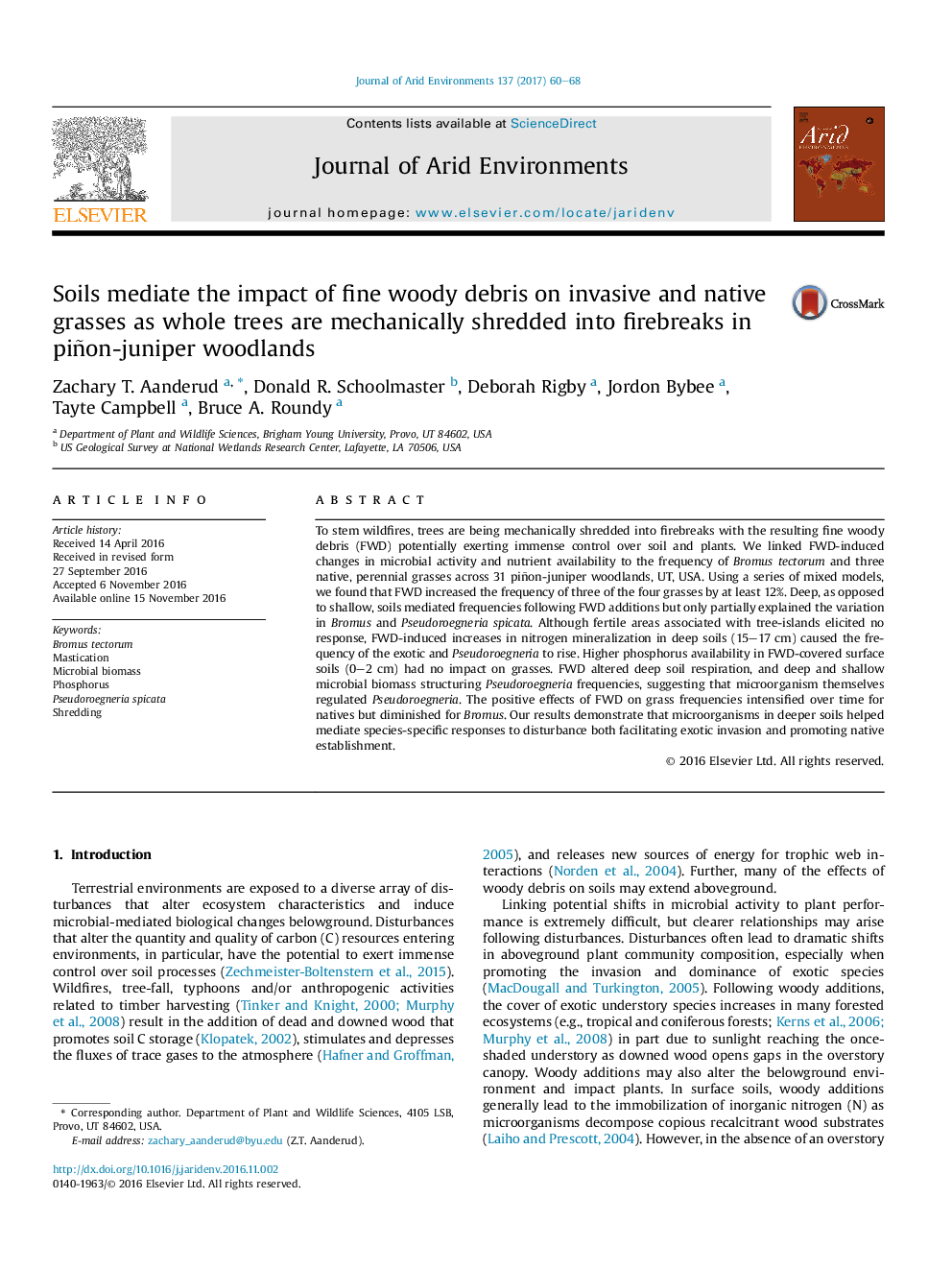| کد مقاله | کد نشریه | سال انتشار | مقاله انگلیسی | نسخه تمام متن |
|---|---|---|---|---|
| 5744420 | 1618222 | 2017 | 9 صفحه PDF | دانلود رایگان |

- Fine woody debris (FWD) resulting from a fire mitigation practice increased the frequency of native and exotic grasses.
- Deep soil processes mediated grass frequencies following FWD but only partially explained the variation of two natives.
- High levels of P in FWD covered surface soils elicited no change among any grass, suggesting that P did not limit grasses.
- The number of years since shredding, but not fertile areas associated with tree-islands structured grass responses to FWD.
To stem wildfires, trees are being mechanically shredded into firebreaks with the resulting fine woody debris (FWD) potentially exerting immense control over soil and plants. We linked FWD-induced changes in microbial activity and nutrient availability to the frequency of Bromus tectorum and three native, perennial grasses across 31 piñon-juniper woodlands, UT, USA. Using a series of mixed models, we found that FWD increased the frequency of three of the four grasses by at least 12%. Deep, as opposed to shallow, soils mediated frequencies following FWD additions but only partially explained the variation in Bromus and Pseudoroegneria spicata. Although fertile areas associated with tree-islands elicited no response, FWD-induced increases in nitrogen mineralization in deep soils (15-17Â cm) caused the frequency of the exotic and Pseudoroegneria to rise. Higher phosphorus availability in FWD-covered surface soils (0-2Â cm) had no impact on grasses. FWD altered deep soil respiration, and deep and shallow microbial biomass structuring Pseudoroegneria frequencies, suggesting that microorganism themselves regulated Pseudoroegneria. The positive effects of FWD on grass frequencies intensified over time for natives but diminished for Bromus. Our results demonstrate that microorganisms in deeper soils helped mediate species-specific responses to disturbance both facilitating exotic invasion and promoting native establishment.
Journal: Journal of Arid Environments - Volume 137, February 2017, Pages 60-68